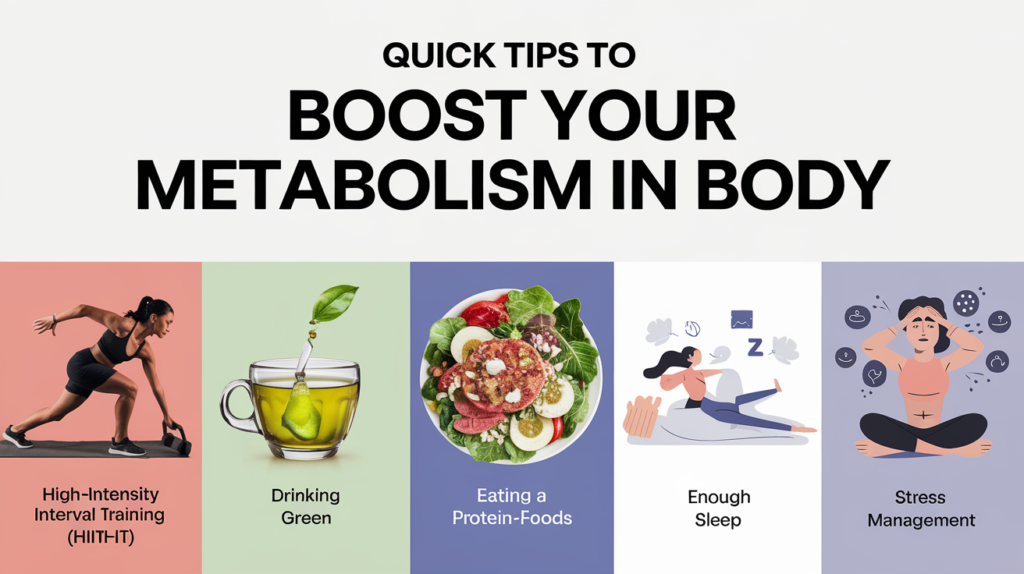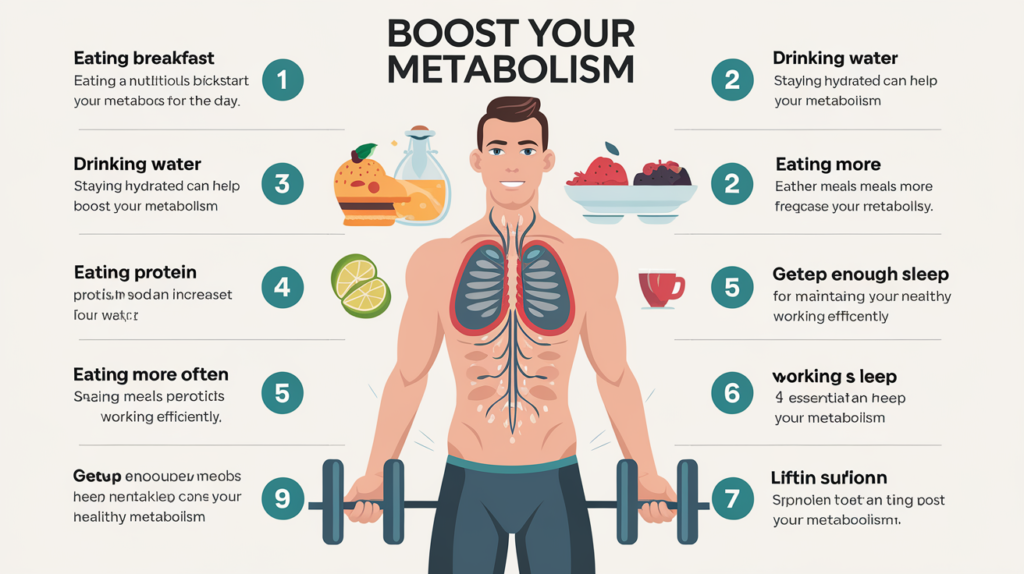Many people strive to increase their metabolism for effective weight management. A higher metabolic rate helps burn fat and lose weight more efficiently, requiring minimal activity. Metabolism refers to how the body produces and consumes energy and calories to sustain life.
Several factors influence metabolism, including muscle mass, meal frequency, genetics, stress levels, diet, and physical activity. Metabolism can slow down due to muscle loss from inactivity, insufficient food energy leading the body to use its own tissue, and decreased physical activity with age.
Here are some effective strategies to enhance your metabolism:

1. Build Lean Muscle Mass
As we age, metabolism naturally declines, but you can counteract this by increasing muscle mass. Muscle plays a crucial role in calorie burning. Aim for strength training at least twice a week, incorporating weights. Everyday activities, like walking or taking the stairs, also contribute to calorie burn. Here are some exercise tips:
Strength Training
- Increase repetitions of exercises.
- Gradually add resistance.
- Explore advanced exercise techniques.
Cardiovascular Training
- Incorporate intervals into your workouts.
- Try cross-training with different exercises.
- Boost resistance and speed over time.
2. Don’t Skip Breakfast
Breakfast is often touted as the most important meal of the day. Studies show that those who eat breakfast tend to weigh less than those who skip it. Delaying breakfast until mid-morning or afternoon can significantly slow metabolism.
3. Limit Sugar Intake
Excess sugar can lead to fat storage. Focus on foods that help maintain stable blood sugar levels. Incorporate regular exercise 2-3 times a week for optimal blood sugar management.
4. Spice Up Your Meals
Incorporating spicy foods, such as those with peppers, can give your metabolism a boost.
5. Prioritize Sleep
Lack of sleep is linked to weight gain. Ensure you get enough rest, as muscle repair occurs during deeper sleep stages.
6. Stay Hydrated
Drinking plenty of water helps flush out toxins produced during fat burning. Adequate hydration supports various bodily functions, preventing sluggishness.

7. Eat Smaller, Frequent Meals
Aim for 4 to 6 small meals throughout the day, spaced 2-3 hours apart, to keep metabolism active.
8. Avoid Skipping Meals
Skipping meals may seem like a quick fix for weight loss, but it can actually slow down your metabolism.
9. Plan Your Meals
Prepare meals in advance to maintain a consistent eating schedule. Avoid erratic eating patterns that can disrupt metabolism.
10. Manage Stress
Stress—whether physical or emotional—raises cortisol levels, which can hinder metabolism. Additionally, stress often leads to overeating.
11. Enjoy Green Tea
Swap coffee for green tea, which can stimulate metabolism without the negative side effects of excessive caffeine.
12. Include Energy-Boosting Foods
Incorporate more fruits, vegetables, beans, and whole grains into your diet for sustained energy.
Achieving your ideal weight is possible with determination and patience. Stabilizing your metabolism is crucial in the weight loss journey. Remember, healthy eating and regular exercise should be a lifestyle choice, not just a temporary fix.
For More Articles Browse Our Blog.
